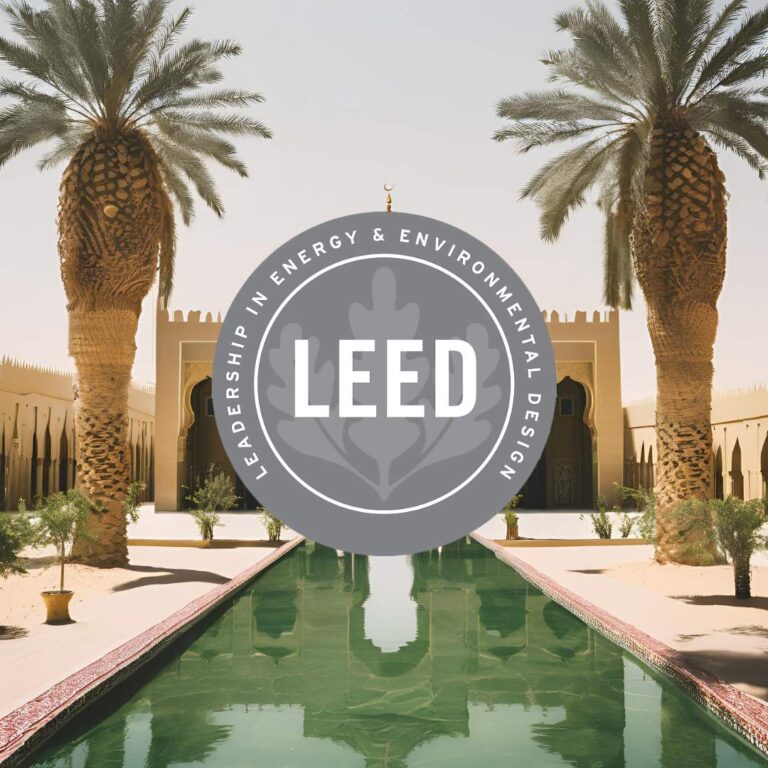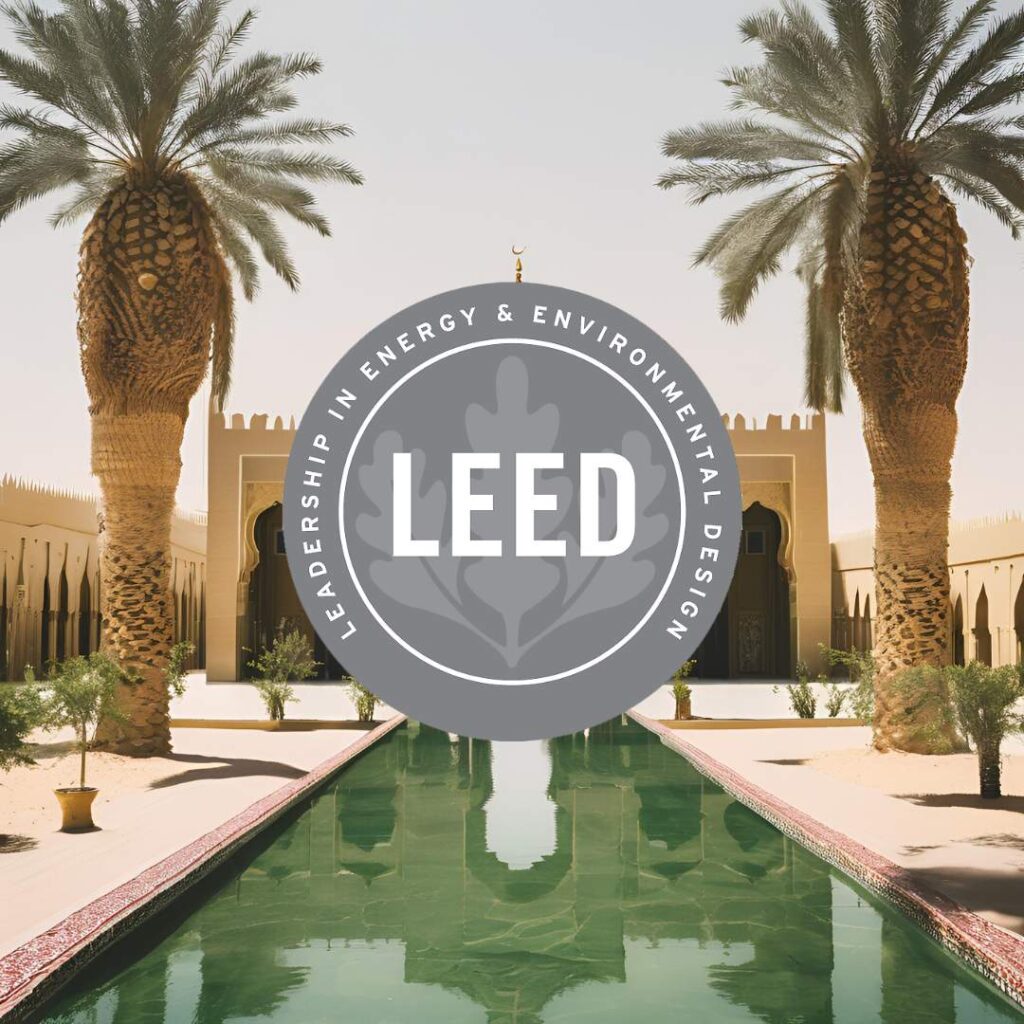
The Kingdom of Saudi Arabia (KSA) is undergoing a significant transformation. As part of its Vision 2030 initiative, the country aims to diversify its economy, reduce its dependency on oil, and promote sustainable development. Central to this transformation is a focus on sustainable construction and environmental stewardship. One of the key drivers for achieving these goals is the Leadership in Energy and Environmental Design (LEED) certification. This globally recognized green building certification system has become increasingly important in Saudi Arabia for several reasons.
Alignment with Vision 2030
Vision 2030 is Saudi Arabia’s ambitious plan to transform its economy and society. Among its objectives are enhancing the quality of life, promoting sustainable development, and protecting the environment. LEED certification aligns perfectly with these goals by encouraging the adoption of green building practices that reduce energy consumption, conserve water, improve indoor environmental quality, and utilize sustainable materials. By embracing LEED, Saudi Arabia is not only advancing its sustainability goals but also setting a benchmark for the region in green construction practices.
Enhancing Economic Diversification and Resilience
Saudi Arabia’s economy has long been heavily reliant on oil. However, as part of its diversification strategy, the Kingdom is investing heavily in sectors like tourism, entertainment, and real estate. Sustainable construction practices, as encouraged by LEED certification, are essential to these sectors’ growth. LEED-certified buildings often have lower operating costs due to energy and water savings, which can enhance economic resilience by reducing overall expenses. Moreover, green buildings attract international investors and tenants who prioritize sustainability, further boosting economic diversification.
Improving Environmental and Public Health
The environmental benefits of LEED certification are substantial. LEED-certified buildings are designed to minimize their impact on the environment by reducing waste, conserving energy, and using resources more efficiently. In a country like Saudi Arabia, where natural resources are precious, such measures are crucial. For example, water efficiency is a critical concern in Saudi Arabia, one of the world’s most water-scarce countries. LEED-certified projects often incorporate advanced water-saving technologies, which can significantly reduce water usage.
Moreover, LEED certification emphasizes improving indoor air quality, which is directly linked to public health. By using low-emitting materials and ensuring adequate ventilation, LEED-certified buildings create healthier environments for occupants, which can reduce the incidence of respiratory and other health issues. This focus on health and well-being aligns with Saudi Arabia’s broader public health goals under Vision 2030.
Supporting Innovation and High Standards in Construction
The LEED certification process encourages innovation and the adoption of high standards in construction. In Saudi Arabia, where the construction sector is booming, this focus on innovation is essential. LEED promotes the use of cutting-edge technologies and construction techniques that can enhance building performance and sustainability. For instance, the integration of renewable energy sources such as solar panels aligns with Saudi Arabia’s goal of increasing its renewable energy capacity. The country’s abundant sunlight makes solar energy an excellent resource for LEED-certified buildings, further reinforcing Saudi Arabia’s commitment to sustainable development.
Promoting Cultural and Social Values
In addition to its environmental and economic benefits, LEED certification also resonates with cultural and social values in Saudi Arabia. The concept of sustainability is deeply rooted in Islamic teachings, which emphasize stewardship of the Earth and responsible use of resources. By promoting sustainable building practices through LEED, Saudi Arabia is not only advancing its national goals but also upholding cultural and religious values that prioritize environmental responsibility.
Attracting Global Recognition and Investment
LEED certification is internationally recognized and respected. By committing to green building standards, Saudi Arabia positions itself as a leader in sustainable development in the Middle East. This can attract global attention and investment, particularly from organizations and businesses committed to sustainability. As the Kingdom continues to open up to international business and tourism, having a portfolio of LEED-certified buildings can enhance its reputation as a forward-thinking and environmentally conscious country.
The importance of LEED certification in Saudi Arabia cannot be overstated. It supports the Kingdom’s Vision 2030 goals by promoting sustainable development, enhancing economic resilience, improving public health, and encouraging innovation in construction. Furthermore, it aligns with cultural and social values and enhances Saudi Arabia’s global standing as a leader in sustainable development. As the Kingdom continues to evolve and modernize, LEED certification will play a crucial role in building a sustainable and prosperous future for all its citizens.

